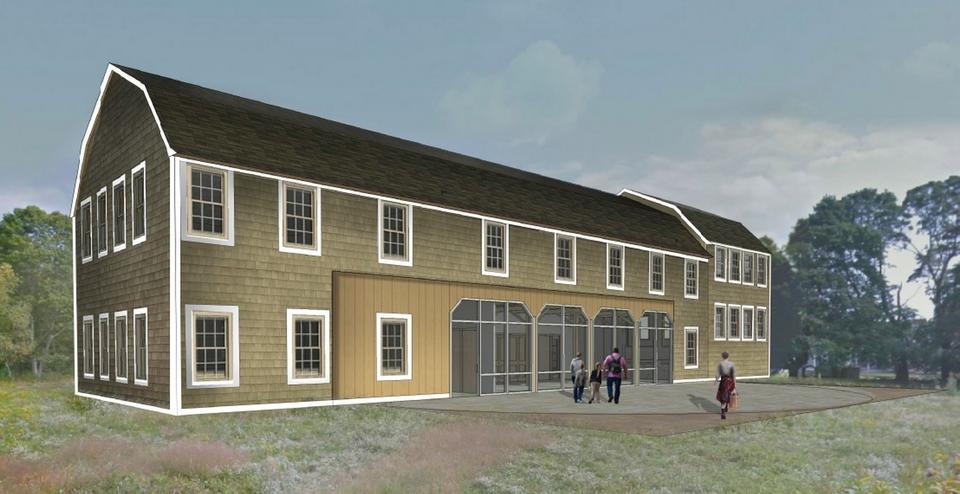By Brandee Lapisky
Posted Feb 14, 2018 at 5:57 PM
Updated Feb 14, 2018 at 5:57 PM

A rendering by Torrado Architects of a plan to renovate a seed barn on The Compass School’s campus into a middle school learning space. [COURTESY OF THE COMPASS SCHOOL]
Too often, tensions over school funding drive district and charter schools apart. Assertions that “Choice costs too much” (Commentary, Jan. 11, by Chariho Superintendent Barry Ricci) question the value of charter schools without honoring their many contributions to Rhode Island public education.
By design, charters were established to “provide high-performing educational opportunities to public school students and develop innovative educational practices that can be shared with other public schools.” It is my pleasure to set the financial tug of war aside to tell the story of one Rhode Island charter’s journey to deliver on this goal.
The Compass School is a K-8 public charter and nationally recognized Green Ribbon School located in Kingston. Our mission is to teach the whole child through the lens of environmental sustainability and social responsibility. Some of our recent achievements include:
• Earning Commended status (the highest of all school classification ratings), for five of the last six years.
• Designing authentic student projects that address rigorous academic standards and authentic community issues.
• Growing the largest school garden in the state, one that includes chickens, goats, pollinator gardens, a lavender labyrinth, raised beds for vegetable production and more. We built a living laboratory to understand and construct solutions to community issues using science, technology, engineering, the arts and mathematics (STEAM) methodologies.
Most recently, with the blessing of the Rhode Island Historical Preservation & Heritage Commission, we began the process of transforming the long-forgotten seed barn on our campus into a beautiful 21st century middle school learning space. Not only will we reuse the existing structure, we will harness the latest green technologies, including rainwater harvesting and solar panels. We will use our new school as a tool to educate our students and visitors about these sustainable practices.
I often hear, “Wow, amazing things are happening at Compass, but even at full scale, you’ll only serve 220 students. What about everyone else — how do Rhode Island’s other students benefit from the existence of your charter?”
Compass teamed up with our venture partner Main Street Resources, the same organization that just launched the Rhode Island Food Center at the University of Rhode Island. After Main Street Resources introduced Compass to Newman’s Own Foundation, these nationally recognized foundations committed $45,000 to The Compass School’s farm and outreach efforts.
This year, Compass will support six Rhode Island schools. With support from Compass’s outreach farmer, school teams will replicate features of the farm in their own schools. Newman’s Own Foundation is following the project’s progress, bringing national attention to articles like So Rhode Island’s Jan. 2 report, “Compass Leads the Way.”
Skeptics doubt that districts will be interested in charter-district collaboration, but we have data that refutes this assertion. Twenty-three Rhode Island schools passionately responded to the opportunity to partner with Compass on this project. This indicates that there is not only interest from district schools but a bona fide demand for cross-sector collaboration.
Mr. Ricci’s call for change speaks to finances and ignores the efforts to improve the education system as a whole. Compass has partnered with major foundations to enrich other Rhode Island schools with our best practices. As we continue the school choice conversation, let us remember to shine a positive light on the significant contributions from the charter sector.
To learn more about The Compass School’s farm, barn renovation plans or admissions application, please visit our website: www.compassschool.org.
Brandee Lapisky is the director of The Compass School, a public K-8 charter. She is also a board member of the Rhode Island League of Charter Schools.
